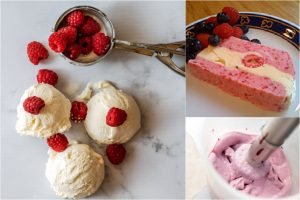Tips On Talking To Your Child About Their Body

When puberty is on the horizon, the more our kids know about their bodies, the less confusing, embarrassing or mystical getting older will seem. Puberty means more than just getting taller and becoming an adult. The human body goes through huge shifts as kids grow older, which can prove to be a difficult few years. One of the important things you can do as a parent is to open up the discussion on healthy habits. Let them know that everyone goes through it, but that now is the time to really start taking care of their bodies so they will look and feel great far past high school.
If you’re looking for a good basic guide on how your body works and what’s going to happen to it during puberty, The Care and Keeping of You: The Body Book for Younger Girls is a time-tested book that’s over 20 years old and has sold more than 5.1 million copies since its initial release. It’s a great book to read together with your child.
While it’s targeted toward girls, the points below can be used for both boys and girls. Here are some beginner tips on how to talk about it with your child:
Feeling Good in Your Skin
Acne happens to lots of kids. It’s a natural occurrence: It starts when the pores become blocked with dead skin cells and dirt, which slows down the flow of sebum to the skin’s surface. Bacteria can then develop in the clogged pore, causing a pimple. The good news is that you can do something about your acne, and it’s not complicated—just a little common sense in your daily routine.
Acne Do’s and Dont’s
-
- Do not squeeze any pimple, this can cause scars and may cause acne to spread.
- Do use hair and other beauty products with care. Look for the word ‘non-comedogenic’ on the label. These products don’t block pores.
- Do not get too much sun. Over time, this can make your acne worse.
- Do not scrub skin hard. This may actually spread acne or make it worse.
- Do eat a healthy diet, participate in regular physical activity and get proper rest.
3 Steps to Healthy Skin
- Clean: To help get rid of everyday dirt and oil on your face, wash twice daily with a gentle soap or cleanser, which can be medicated or non-medicated. Deep cleanse with a cleanser containing salicylic acid.
- Prevent: To help prevent pores from becoming clogged, use a salicylic acid product all over the face to help prevent pimples.
- Treat: To help eliminate pimples quickly, use a benzoyl peroxide product to unclog pores.
Healthy-Looking Hair and Smile
Develop a routine for taking care of your hair, just as you do for your skin. It’s simple: just use a good shampoo followed by a conditioner every time you wash your hair.
A good shampoo not only cleans your hair, it can also help protect your hair from damage and can nourish it too.
Shampooing is good for your hair because it helps remove deposits, such as dirt, sebum and styling products. A conditioner untangles your hair and makes it easier to manage. It can also help keep it moisturized and protect it from damage.
Tips for Healthy-Looking Hair
- Shampoo your hair regularly (daily if you want to) instead of using soap. Shampoos are specifically made to clean hair. If your hair looks or feels dirty between shampoos, you may need to shampoo more often.
- Massage conditioner into your hair with your fingertips so the conditioner can spread throughout your hair. This will help keep your hair looking healthy and strong.
- If your hair tends to be dry and delicate, you can protect your hair by shampooing and conditioning it less often and styling it gently with a wide-tooth comb.
- If your hair is cut very short, use a sunscreen on your scalp or wear a hat to protect against the harmful effects of the sun.
Finally—don’t forget your teeth! Part of having a healthy body is making sure you keep your teeth clean. To keep them strong and healthy, make sure you brush them properly every morning and every night with a good toothpaste. For best results, brush from gum to teeth. You should also floss daily in between your teeth.
A Good Toothpaste Should:
-
- Fight the decay that causes cavities.
- Attack the plaque bacteria that cause gum problems.
- Help prevent tartar.
- Strengthen teeth.
With these tips, you’ll not only avoid some major teenage frustrations, but you’ll be able to give your kids the foundation of a healthy daily routine.
Do you have any tips you’ve told your teens to ease the transition into puberty? Let us know in the comments below.













